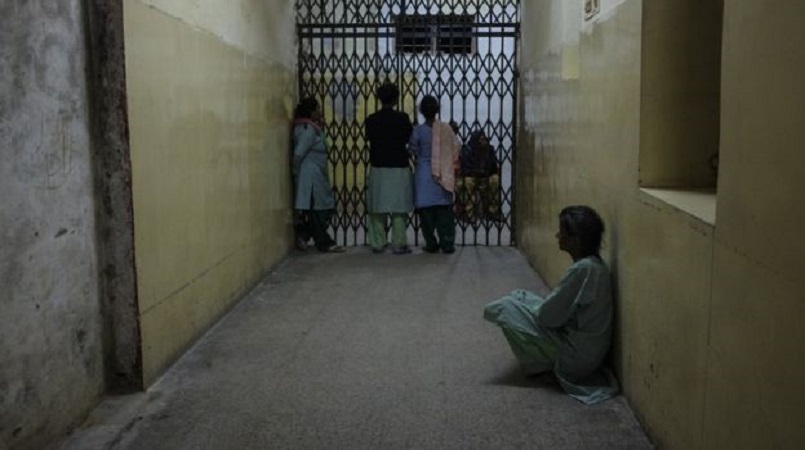
The female ward at the Institute of Human Behaviour and Allied Sciences (IHBAS) in India's capital Delhi is home to about 80 women with mental health problems.
Photographer Cheena Kapoor spent months documenting the women on the ward. Mental illness is "not the only war the women fight here - the stigma of social acceptance and gender discrimination is a major cause of their trauma", she says.
"The male ward is always filled with anxious faces waiting for the sons to return home, while the daughters are so easily forgotten."
These are some of their stories:
Vaishnavi remembers helping her father on the farm in her village in the Garhwal region of the northern state of Uttarakhand when she was six years old. She said she got distracted by ripe mangoes and a couple of hours later, could not find her father anywhere. She was brought to the hospital by the police, and has been there for 22 years.
The hospital has failed to find her home despite several attempts.
Most patients on the ward are admitted by their families or picked up from the streets by police.
Bhavna wasn't happy with her advertising job as it used to stress her out. She started exhibiting psychotic symptoms after the death of her father and was admitted to the institute 10 years ago. Her mother still sends her a box of sweets every Diwali through her driver, Alok uncle.
Bhayna is one of 22 long-stay patients, who have been on the ward for more than two years. Her fellow patients suffer from a range of illnesses, including depression, anxiety and panic attacks.
Some have fully or partially recovered but remain on the ward because their families have abandoned them.
Kunti contracted HIV after she was raped, which led her friends to abandon her. This institute has been her "home" for three decades now.
Lali has been at IHBAS for over 20 years. Other patients remember her arriving dressed in a sari as a young girl from Nepal. She suffered a miscarriage two days later. She was brought to the ward by the police. She refuses to share her story with anyone.
Chhaya died before these photos were published - she was 68 and had spent 30 years on the ward. No one came to her funeral.
Razia's mother died while giving birth to her. A few years later her father died too. Her siblings realised she had mental health issues when she started to do all the household chores, dressed in traditional marriage attire. They brought her to the ward three years ago.
Razia still dreams of getting married and leading a "normal" life.
Anu was beaten, accused of being shameless and threatened with death because she dared to initiate sex with her husband of two years. A wife suggesting sex is still a taboo in certain regions - the husband is expected to lead. She developed mental health issues soon after.
Aruna, who cannot speak, was found on the streets of Delhi 19 years ago by police. She is notorious for her playful antics and is often chased by other patients because she hides their personal belongings.
Vimal (left), a mother of two, was kidnapped from her village, raped and thrown on the streets of Delhi with 100 rupees in her pocket. She bought a cigarette pack with the money and left it where her assaulter dumped her.
She remembers her children, but cannot recall the name of her village.
The hospital, funded by the Delhi government, is now planning to open a half-way home called Saksham (capable) for its long-stay patients.
